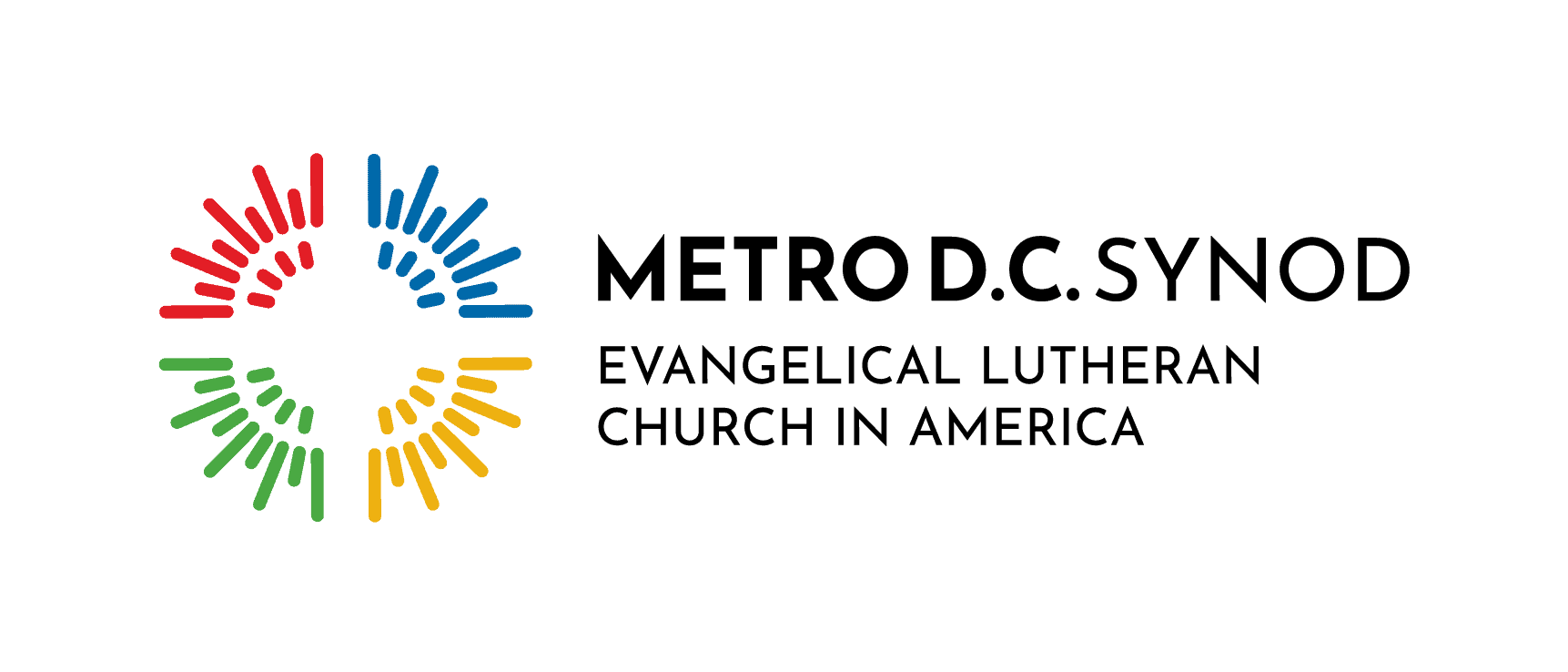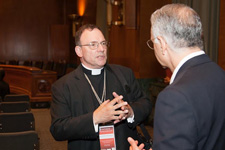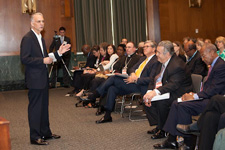Faith leaders pledge to model and influence civility

The Rev. Richard H. Graham, bishop of the ELCA Metro D.C. Synod, is among national faith leaders from across a broad ideological spectrum who signed a “’Better Angels’ Statement” released on August 23, 2012. Shared efforts for civility and peaceful conversation were pledged by the 18 signers, including the Rev. Pierre Bynum of the Family Research Council, the Rev. James A. Forbes of Riverside Church, Dr. Richard Land of the Southern Baptist Convention, and Most Rev. Katharine Jefferts Schori of The Episcopal Church, along with a commitment to a ministry of reconciliation.
In response to what sponsors called the current climate of acrimony and division, the Better Angels Summit was held June 27-28, 2012, in Washington, D.C. by The Faith & Politics institute in partnership with the John C. Danforth Center on Religion and Policy, the National institute for Civil Discourse and the Harwood Institute for Public Innovation. The title of the summit was taken from President Abraham Lincoln’s call to the “better angels of our nature” in his first inaugural address.
“The meeting which lies most directly behind this statement took place about two blocks from the Supreme Court building on the day the court voted to uphold the constitutionality of the healthcare reform legislation,” said Bishop Graham. Civil discourse built the summit’s outcome statement against what he described as that “tense and exciting” backdrop.
Text of the “‘Better Angels’ Statement” follows. Follow link to the full list of signers, as well as an accompanying press release from The Faith & Politics Institute (President Lincoln Once Called Upon Americans to find the “Better Angels of Our Nature” That Time has Arrived Again, 8/23/12).
‘BETTER ANGELS’ STATEMENT
I. As people of faith in leadership positions, we will seek to model civility and achieve the following goals in our personal spheres of influence:
- Lead by example, modeling civil discourse with and respect for those with whom we disagree.
- Lead by recognizing that our deeply held beliefs, values and principles will not be compromised by courteous, respectful and civil disagreement when we interact with those with who whom we disagree
- Lead by tackling the controversial issues of our time without resorting to clichés, resorting to stereotypes or putting people into preconceived boxes
- Lead by establishing relationships that will allow each of us to express our convictions openly in our interactions with each other knowing that we will be heard and respected.
II. We agree to the following “Commitment to Reconciliation.”
We are faith leaders from various Christian traditions and have different, sometimes opposite, opinions on important subjects of religion and politics. While we do not agree on some issues, we are concerned that excessive polarization in politics is harming America. We affirm that differences on some matters should not create polarization on all issues. We believe that where we disagree, we should do so in a spirit of mutual affection, showing honor to one another. We believe we are called to a ministry of reconciliation. We shall make our best effort to seek understanding of and respect for our differences and identifying areas where we can work together with mutual respect.
III. We agree to begin working toward a broad initiative that will influence church members, media, and all of society toward greater civility.
IV. We agree to pray for each other and for our leaders of all different political views.




